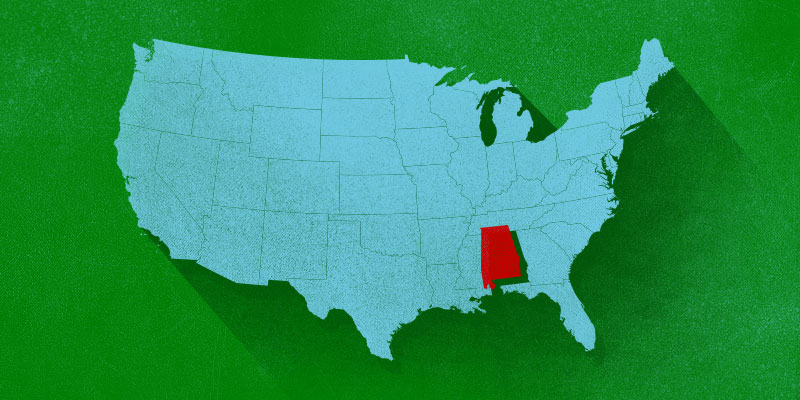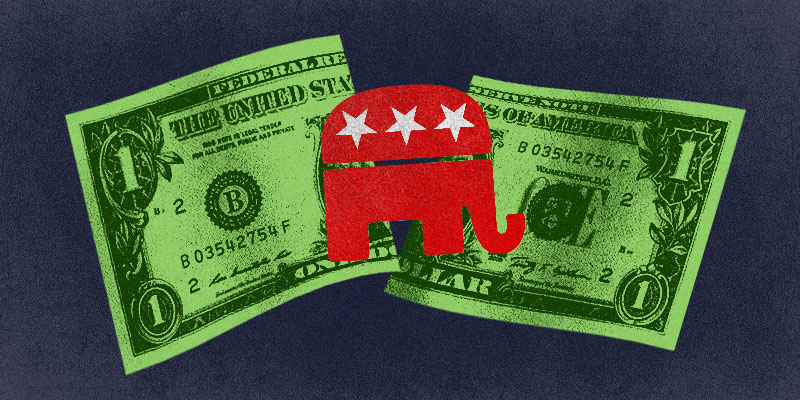
The tax reform bill passed Thursday by the U.S. House of Representatives would help Alabama — but not by as much as most other states.
That is the conclusion of the Washington-based Tax Foundation, which analyzed the macro effects of the major provisions of the Tax Cuts and Jobs Act and then applied them to each state.
Every state would be a winner, but Alabama lags both on the increase in after-tax income for the average family and in the number of new jobs that would be created.
Overall, the Tax Foundation forecasts the tax bill would create 890,000 nationwide over 10 years and put $2,243 into the pockets of the average middle-income family. The average tax benefit for Alabamians would be $1,794, better than just five states — Arkansas, Kentucky, West Virginia, Louisiana and Mississippi.
New Hampshire taxpayers would get the biggest benefit — $2,898 for the average taxpayer.
The Tax Foundation analysis is based on the original version of the House bill and does not take into account any of the amendments adopted since. John Buhl, a spokesman for the think tank, said his organization would update its report.
“Even though they might be small changes from where things stand now, our state-by-state estimates wouldn’t change much,” he said.
Alabama also would lag in job creation, according to the analysis. The 12,161 new jobs projected by the Tax Foundation put the state in the middle of the pack. Adjusting for population size, however, the results are rather lackluster. The projected job creation comes to 250.1 new jobs for 100,000 people, compared with a national average of 275.4 new jobs per 100,000 residents.
The new-jobs rate trails Alabama only in three states — New Mexico, Arizona and Mississippi.
By far the biggest jobs winner would be the District of Columbia. The 4,815 new jobs projected by the Tax Foundation represents a rate of 706.9 per 100,000.
The reason why Alabama ranks near the bottom of the analysis relates to how the think tank constructed its model, which uses each state’s median income and share of the gross domestic product as a baseline.
“Because California has a very large share of the economy, it would get a large share of the benefits,” Buhl said. “But Alabama would still see some, as well. It would just be adjusted for the GDP.”
Using Buhl’s example of California, the Golden State’s massive size — both in population and the size of its economy — would make it a tax-cut winner in raw number. The Tax Foundation projects 101,422 new jobs over a decade, more than a 10th of the total for the whole country. The $2,532 average income gain ranks California in the top 15.
Republican members of the House delegation heaped praise on the bill.
“We took a historic step today toward giving hardworking Americans a long overdue tax cut,” Rep. Bradley Byrne (R-Fairhope) said in a statement. “Just as important, our tax reform legislation will help make the American economy boom again, leading to greater economic growth and higher wages.”
Rep. Gary Palmer (R-Hoover) said in his own statement: “One of the primary reasons I ran for Congress was to have the opportunity to help make major reforms that help American families and that help make our nation more secure, more prosperous and on a path to fiscal stability.”
Rep. Mike Rogers (R-Saks) said in a statement that he is proud of the bill.
“This bill will help families across East Alabama and the nation keep more of their hard-earned paychecks and will help small business thrive and create new jobs,” he stated.
The delegation’s lone Democrat, Rep. Terri Sewell (D-Birmingham), argued it would blow a hole in the national debt.
“The Republican tax bill which passed the House today is nothing more than a giveaway for corporate special interests at the expense of America’s working families,” she said in a statement.












